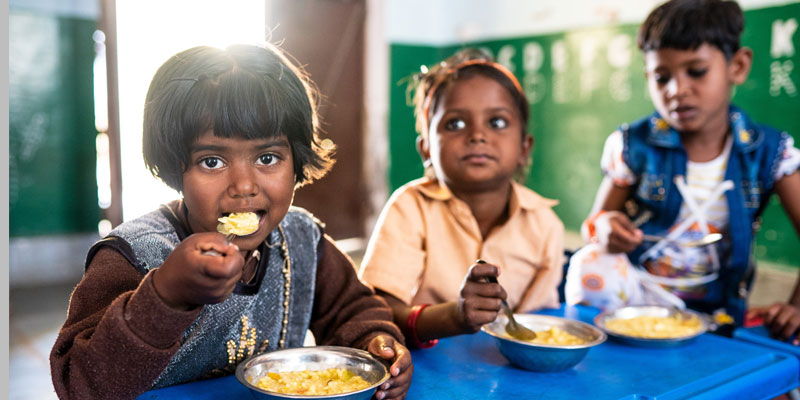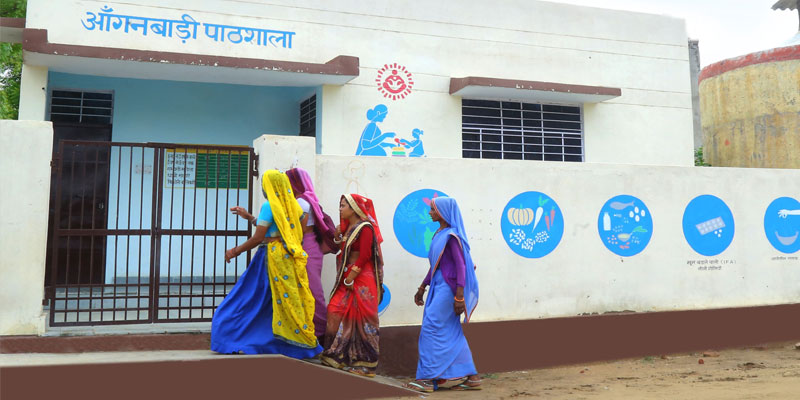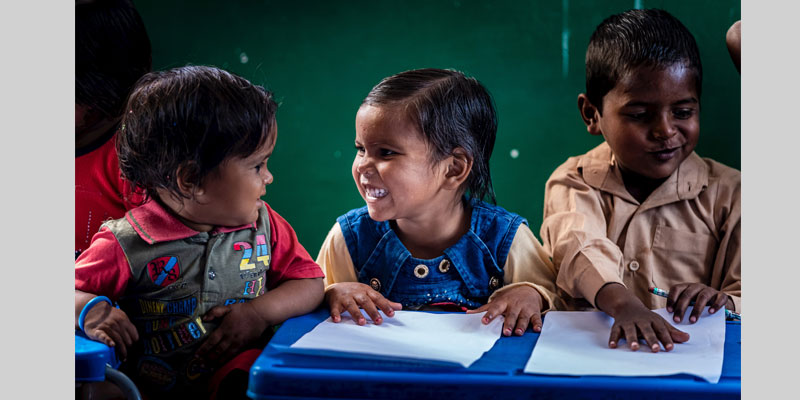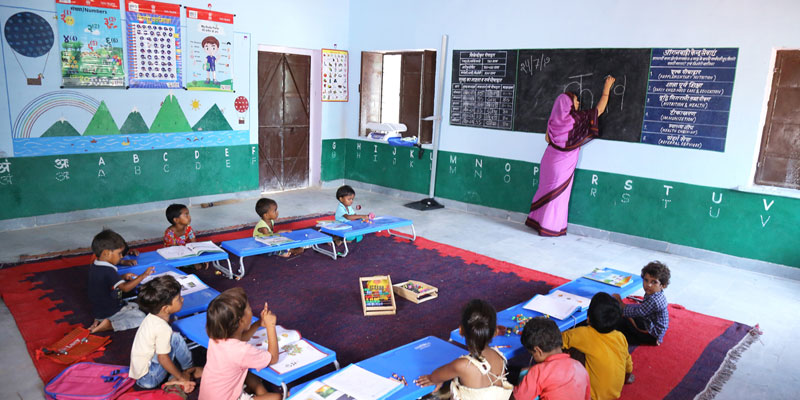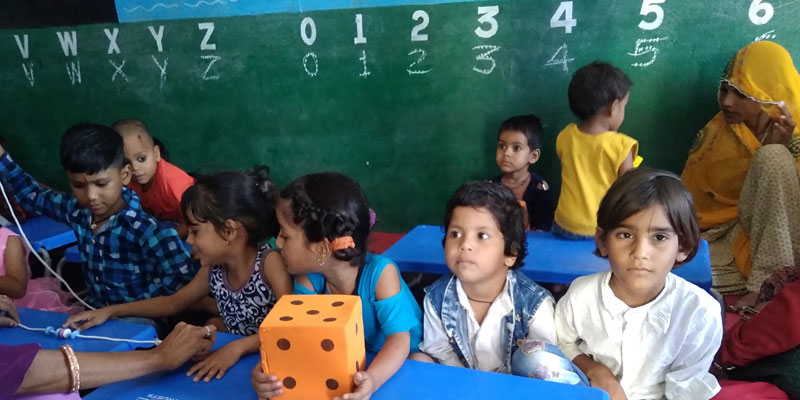Malnutrition is a serious problem in Indian society. Local governance and grassroots community participation is critical in the implementation of government schemes to tackle this issue. Dr Nilesh Yadav, Programme Officer, Tata Trusts’ Nutrition portfolio, explains the challenges faced in ensuring this participation and the learnings from the Trusts’ interventions in Rajasthan
Malnutrition is a critical health care issue that is responsible for adverse effects on human health. The high rate of malnutrition stunts growth and leaves victims at a high risk of chronic diseases later in life. It is also a huge burden on the national exchequer.
The need for grassroots involvement
Fighting malnutrition in a country that is as vast and diverse as India is a challenging task. In 2018, the Government of India launched Poshan Abhiyan, its flagship initiative, to address this issue on a holistic level.
Despite sustained efforts, our progress in redressing this malaise has been uneven and slow. If we are to make any real progress, government schemes need to be effectively implemented.
Ensuring effective implementation requires strong monitoring mechanisms at grassroots’ level. In fact, Poshan Abhiyan emphasises the need for local engagement as part of convergence.
Working for nutrition is not among a panchayat’s functions. However, working for women and child development is a crucial part of its objectives. And there are two important reasons for engagement with village panchayats. One is the availability of a community-based platform – the gram sabha – which meets at least twice a year. The second is the increased availability of their funds made available by the 14th Finance Commission.
So, the National Institute for Rural Development and Panchayati Raj (NIRD & PR) are conducting courses for panchayats. The goal is to sensitise them on the important role they can play to promote nutrition in their villages.
A call to action
The Tata Trusts aims to achieve long-lasting, sustainable results through a multi-layered approach in addressing malnutrition. As such, the Trusts work closely with local communities to create awareness, improve perceptions and increase grassroots participation.
The Trusts’ Making It Happen initiative supports Integrated Child Development Services (ICDS) in tackling malnutrition in different states. In 2019, the initiative engaged with 1373 panchayats to promote nutrition in Alwar, Dausa, Dholpur, Karauli and Tonk districts in Rajasthan.
Team members conducted an initial study on the “Perceptions of the ICDS amongst Stakeholders in Rajasthan”. The study found that anganwadi workers and helpers in the state were reporting the work they were doing to the sarpanchs. However, this reporting was largely a signing off in the attendance registers.
Anganwadi workers complained that the sarpanchs and panchayats did not take an interest in the services offered by the anganwadis. On the other hand, the sarpanchs felt that the ICDS services they offered were not of the desired quality. While the anganwadi workers were hard working ladies, they lacked the training and skills to promote nutrition amongst women and children.
A collaborative approach
The Trusts’ initial engagement with the panchayats began with the transformation of 205 anganwadis under the Making It Happen project in 2018-2019. While anganwadi buildings were being repaired and painted, panchayats were requested to contribute towards repairs. They were also asked to provide safe drinking water, sanitary toilets, electricity, and a boundary wall.
Team members documented the following changes in the 204 anganwadis that were transformed.
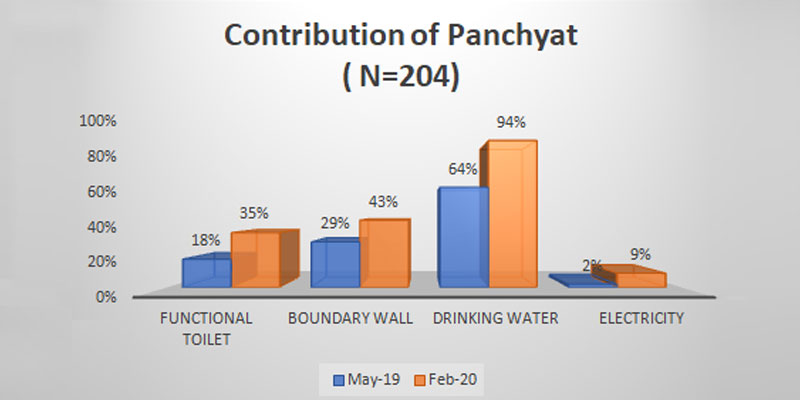
The panchayats were generally satisfied with the work done to transform the anganwadi centres. “I used to pass this building every day on my way to the panchayat office,” said Bhanwar Lal Yadav, sarpanch, Jhilai panchayat, Tonk district. “But it was only after it was transformed and painted that I realised that this is one of the nine anganwadis in my panchayat. I appreciate what has been done and will work to promote nutrition in my village.”
Mohammed Azam, the sarpanch of Machadi panchayat in Alwar district concurs. “I knew children in my village get food at the anganwadis. But I was not aware where the building is, or what services were being provided there. It was only after this building was re-painted that I learnt more about it.”
Subsequent project interventions included work on capacity building of anganwadi workers and helpers. The interventions also included the promotion of diet diversity, treatment of severe acute malnutrition. and early childhood education.
Learnings and roadblocks
The India Nutrition Initiative (TINI) module differs from the module developed by NIRD. Both modules present what the Government of India is doing to promote nutrition among women and children. Both detail several programmes of the Health Department and ICDS.
However, the TINI module goes one step ahead. It urges panchayats to be pro-active and contribute towards the functioning of the anganwadi centres. This forms the core of the Panchayat Panchasutra.
